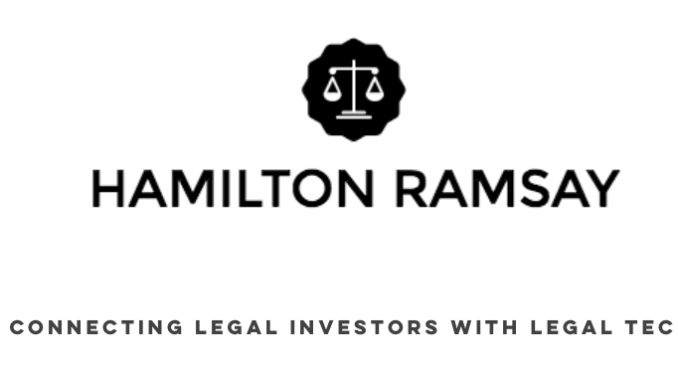
A new angel investment network, Hamilton Ramsay, largely comprising former partners of major law firms, including from White & Case, is launching in the UK to help grow legal tech start-ups with seed capital and mentoring.
The angel investment group has been co-developed by Freddie Bellhouse, a former associate at Kirkland & Ellis and founder of the Fordhouse Equity fund, which invests exclusively in small businesses based in the UK.

Freddie’s father, John Bellhouse, previously the Executive Partner of White & Case’s London office between 1998 and 2003 and who became an independent arbitrator in 2010, has played a key role in starting the investment network.
The goal will be to support a new wave of legal start-ups, including those using AI technology.
The grey haired angels currently number around 50 partners and former partners, and could rise as high as 100 by the time of the official launch, expected in January next year.
The aim of Hamilton Ramsay is to see at least two angels commit around £50,000 each in seed capital to each of the chosen legal start-ups. Equity stakes in the start-ups would be around 9% to 10% for a £100,000 ($122,000) seed capital investment. Fordhouse Equity could in some cases also make an investment.
The senior and former lawyers will not just provide seed capital, but also tap their experience and know-how for the entrepreneurs, as well as introduce the start-ups to major law firms. The partner angels would then, where possible, take NED/advisory board roles at the start-ups.
Freddie Bellhouse explained that his father had suggested the idea of investing in legal tech start-ups about a year ago. Several other former partners they knew were in advisory /NED roles and the idea grew from there.

In terms of the types of legal tech companies the group may focus on Bellhouse explains: ‘Any application that can be made use of in City law firms is of interest, and that will include AI.’
‘If the start-up’s technology helps to reduce the grunt work inside law firms then we are interested in it.’
Bellhouse added that the focus would probably not include applications that were more ‘public facing’, as this would not help to tap the expertise of the angels and their commercial firm backgrounds.
This latest move follows two parallel trends in the legal tech market. The first is for former partners to get involved in advisory roles for legal tech start-ups. The most recent example is former Linklaters’ global managing partner, Tony Angel’s role on the advisory board of new AI-driven document review company, TagDox.
The second trend is for smaller groups of investors, especially at the seed and incubator phase, to support legal tech companies. Last month Legal Geek, the legal tech conference developer, announced it would be starting an incubator. Meanwhile, Canada-based Law Made also announced they would be creating a legal tech start-up fund. And, at a different scale, the Law Society of England & Wales, also stated it was looking at how it could fund start-ups.
The legal market has also seen some noteworthy investments from Dentons’ legal tech development platform, NextLaw Labs, as well as from first round investors such as SeedCamp, with the two groups co-investing in several companies.
Meanwhile in Australia, Melbourne-based law firm, Mills Oakley, has created an accelerator fund that will guide start-ups and also take investment in them.
Perhaps the big question now is: are there going to be enough legal tech start-ups for all these investors and growth supporters to help? Time will tell, but there has perhaps never been so much enthusiasm for launching legal tech start-ups as there is now, in the UK, US, Canada and across Continental Europe, as well as in the Asia-Pacific region.